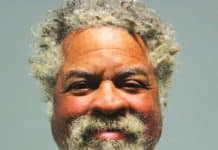
We commend the Sedona-Oak Creek School District Governing Board for voting on Tuesday, Aug. 18, to reopen classes in a hybrid model, allowing for in-person, on-campus instruction on Monday, Aug. 24.
Our children deserve the opportunity to learn in the classroom because online instruction so far has been mediocre, at best. Parents have legitimate concerns that with schools having closed to on-campus instruction in March and staying closed, perhaps indefinitely, that their children would suffer an extended “summer learning loss.”
According to a 2015 study, “MAP Norms for Student and School Achievement Status and Growth,” students lose retention of about 20% of what they learn in reading and 40% of what they learn in math over the two- or three-month summer break, which must then be retaught in the fall. Without students in the classroom, or only spending an hour a day with teachers via video conferencing, this loss could be academically catastrophic for students who need hands-on instruction.
Thus, COVID-19 or not, if parents choose to take the risk to send their children to school, then school districts have an obligation and a duty to represent these parents and taxpayers and provide their children with the opportunity to learn on-site.
Parents who instead choose the online education method because they feel it’s safer or a better educational method can still do so.
But having in-classroom instruction allows those parents who cannot afford to stay home, or cannot afford babysitters, or don’t have relatives who can watch their kids, the opportunity to send their children to school so that they can go to work in a pandemic that has put millions and millions of Americans out of their jobs.
The last thing a single parent or one-half of a working-class couple wants to say is, “thanks for hiring me for this job opening, but I can’t come to work, because I have to stay home with my young child because the local district won’t let me send them to school.”
By reopening the schools, SOCSD puts an end to this impossible situation and gives our most needy and most vulnerable families some breathing space, which has been choked off by the failure of the federal government to prevent or contain the coronavirus and the abject failure of Arizona Gov. Doug Ducey, who has spastically closed, then opened, then closed, then partially opened businesses.
We also commend the school board for looking at appropriate data. The school dashboard set up by the Arizona Department of Health Services chose — for an inexplicable reason — to select data over a two-week period … but a two-week period ending more than 12 days ago, making the data it recommends school districts use when deciding whether to open campuses or not nearly a month old.
The main Arizona Department of Health Services dashboard shows conditions in Yavapai County have improved significantly to the point where schools could safely reopen, but it still looks questionable on the ADHS school dashboard.
If you’re uncertain how the “current” week of Aug. 8 is going to look on the school dashboard, through my powers of prognostication, I can tell you that percentage. Am I psychic? Have I lived in Sedona so long that I have picked up magical powers from my neighbor? Do I drink the “good water”? No, I know the number because it’s posted elsewhere on the ADHS website, which makes the out-of-date school dashboard absolutely absurd.
Ducey skews the “data” to fit his political goals. It seems fairly clear that the reason Ducey selected this out-of-date data was because when he announced schools could reopen, current data at that time wasn’t too bad in many counties, but two weeks and 12 days prior it was and he was facing massive pressure from teachers unions, state education officials and political pundits not to reopen schools.
Thus, he could arguably say “well, I guess the ‘data’ says schools can’t reopen right now,” and come off like a hero who “followed the numbers.” Then as conditions improved, the “data” would allow reopenings, not Ducey, he could claim, and avoid any political consequences. Funny he didn’t feel that way when shutting down school in a two-minute video in March when poll numbers were on his side.
We commend the SOCSD for reopening schools for children whose parents feel it is safe to return. The governor failed to govern, so we are glad local officials have taken up their reins where he dropped them.
Christopher Fox Graham
Managing Editor





















